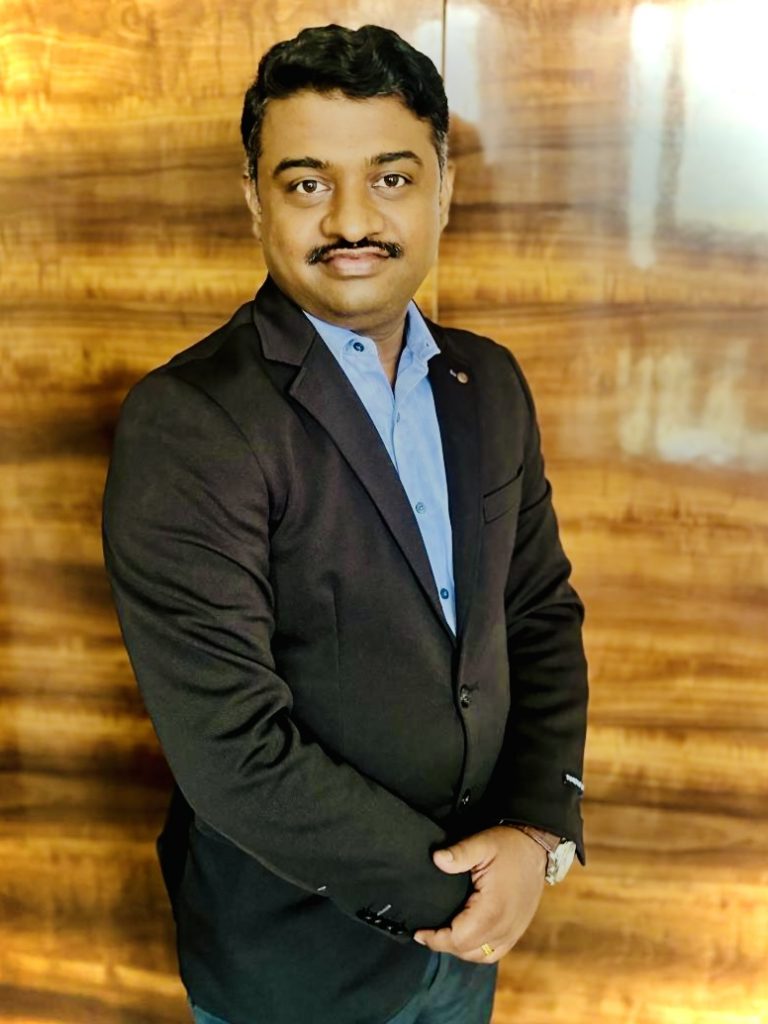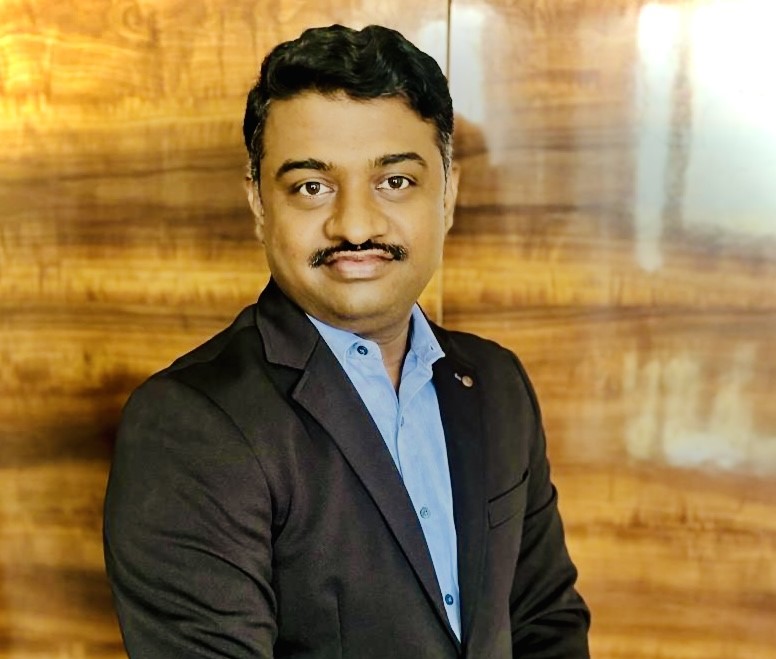This Interview has been published by Pragya Chandni and The SuperLawyer Team

Can you share what initially inspired you to pursue a career in law and how your journey began?
By a stroke of fate, I found myself on the path to becoming a lawyer just a day before my 12th-grade results. It was a decision made by my father and sister to guide me towards law instead of medicine. Little did I know that this unexpected turn would lead me to a remarkable legal journey. Was fortunate to meet some great people and books in the legal field.
I pursued a Bachelor of Laws degree from Shivaji University in Sangli, Maharashtra. Subsequently, I pursued a Master of Laws in Business Law at Symbiosis Law School, where I had enriching experiences such as internships with the Competition Commission of India, contributing to international publications, and engaging in advanced legal research.
My time at Symbiosis Law School marked the beginning of a remarkable professional journey. I ventured into the corporate sphere, contributing to esteemed organizations such as Kirloskar Brothers Limited, John Deere India, Thermax Limited, and now, Bayer CropScience. Also got the opportunity to work with some great managers.
Your career spans various notable companies and roles. Can you walk us through the major milestones and transitions in your professional journey?
Well, there are many, but few are very special, like high stake arbitrations against dealers, NGO’s or PSU’s where you work hard and obtain favourable orders for your company. Arbitration requires continuance focus, as these matters are not time bound and will finish quickly.
Also implementing a compliances tool from scratch for manufacturing sites, establishments and EPC sites was a great learning experience. Further, implementation of new legislations like HSRP, EPR, Legal Metrology Packaging Rules too enriching experience. Last year I received an award by Legasis for ‘40 Under 40’.
I started my corporate journey with a capital goods manufacturing and EPC company, where I delved into the intricacies of commercial contracts, navigated complex real estate issues, and delved into the realm of Patents and Trademarks. This experience laid the groundwork for my subsequent endeavors, as I transitioned to an automobile company, where I gained invaluable insights into legal operations, statutory compliances, MACT and labour cases, advising on employment laws, and the complex web of EHS regulations.
In my subsequent roles within the power/renewable sector, I found myself immersed in a range of commercial disputes spanning India and various regions across the globe. This journey also brought me face to face with the complexities of MSME and IBC issues, enriching my understanding of the multifaceted legal landscape.
Currently, I stand as a Legal Business Partner for Legal Operations, overseeing sites and their litigations, navigating the contracts, and ensuring adherence to employment laws and EHS regulations.
As the Legal Business Partner at Bayer CropScience, what are some of the key responsibilities and challenges you face in leading legal operations in India?
The role of a Legal Business Partner is to serve as a strategic advisor and collaborator within a business, working closely with various stakeholders. Being a part manufacturing site’s leadership team- understand business needs, collaborate and advise on varieties of issues like License to operate, show cause notices from Govt. authorities, leading arbitration/litigation, dealing with complex real estate issues, negotiating commercial contracts & compliances advice.
India Legal operations have unique challenges- first, Regulatory Complexity- Navigating the intricate web of laws and regulations at the national, state, and local levels, as well as the dynamic nature of regulatory changes, can pose significant challenges for legal operations. Second, Compliance Management-Ensuring real time compliance with a wide array of statutory and regulatory requirements, including labor laws, environmental regulations, tax laws, and industry-specific regulations, requires robust compliance management systems and processes.
You have many notable achievements in resolving high-stake litigation. Can you tell us more about these experiences and what they entailed?
It was a profound experience. It demands a strong legal strategy. Further, it involves analyzing complex legal issues, anticipating opposing arguments and being ready with counter strategy. Being an in-house counsel you have to explain the complex business issue to the lawyer in a simple way and explain complex legal issues to business in a simple way, that is the advantage of being an inhouse counsel. It will also teach you resilience in intense pressure, tight deadlines, and the need to maintain composure. Being a meditation teacher is an advantage.
You will soon find that the reward for good work is more work.
However, I personally believe that litigation and arbitration are expensive, and the recent Mediation Act will play an important role in future legal disputes.
Given your extensive experience in various sectors like agriculture, renewable energy, and manufacturing, what are some unique legal challenges you’ve encountered in these industries?
In any manufacturing industry, more or less, 3 tasks are always there, 1. Employment Laws: Adhering to labor laws, industrial relations, and employment regulations, including issues related to labor disputes, contract labor, and workplace safety, presents legal challenges for manufacturing industries. 2. Product Liability and Consumer Protection: Managing product liability risks, compliance with consumer protection laws, and addressing consumer grievances and product safety standards are critical legal considerations for manufacturers. 3. Environmental Compliance and Pollution Control: Ensuring compliance with environmental laws, pollution control norms, hazardous waste management, and addressing industrial pollution concerns are significant legal challenges for manufacturing entities.
This is not about legal operations, but I believe we should have an institute or organization for in-house legal counsel, similar to those for other professions. This would help in the growth and development of in-house legal counsel.
Compliance with regulatory requirements is a critical part of your role. How do you ensure that your company stays ahead of regulatory changes and maintains compliance across various legal domains?
Technology plays an important role here. We have good numbers of compliance management tools in India, which monitor thousands of compliances and hundreds of legislations in real time. Further, the tool needs to be updated with the latest legislation. In my personal opinion no tool will work on its own, it is people who make the tool work. The success of a tool will depend on how simple and convenient the tool is. Also, we need to acknowledge employees’ efforts on compliances and compliance needs to be celebrated.
Shifting gears, GenAI has the potential to significantly impact legal compliances, it can predict and monitor compliance trends, anticipate regulatory changes, automated compliance reporting and provide Compliance Training. Inhouse counsel needs to take the advantage of the GenAI, my current organization offers a ‘Prompt engineering’ course to employees.
Finally, what advice would you give to fresh law graduates who are about to embark on their legal careers, especially those interested in working in-house within corporate legal departments?
In corporate you need to have Business Acumen, understanding the broader business context, including financial implications, risk management and strategic decision-making. You also need meaningful collaboration. Start your journey being a generalist and then move to specialist. And keep enrolling to new courses/programs.
Get in touch with Saagar Gaikwad-


























